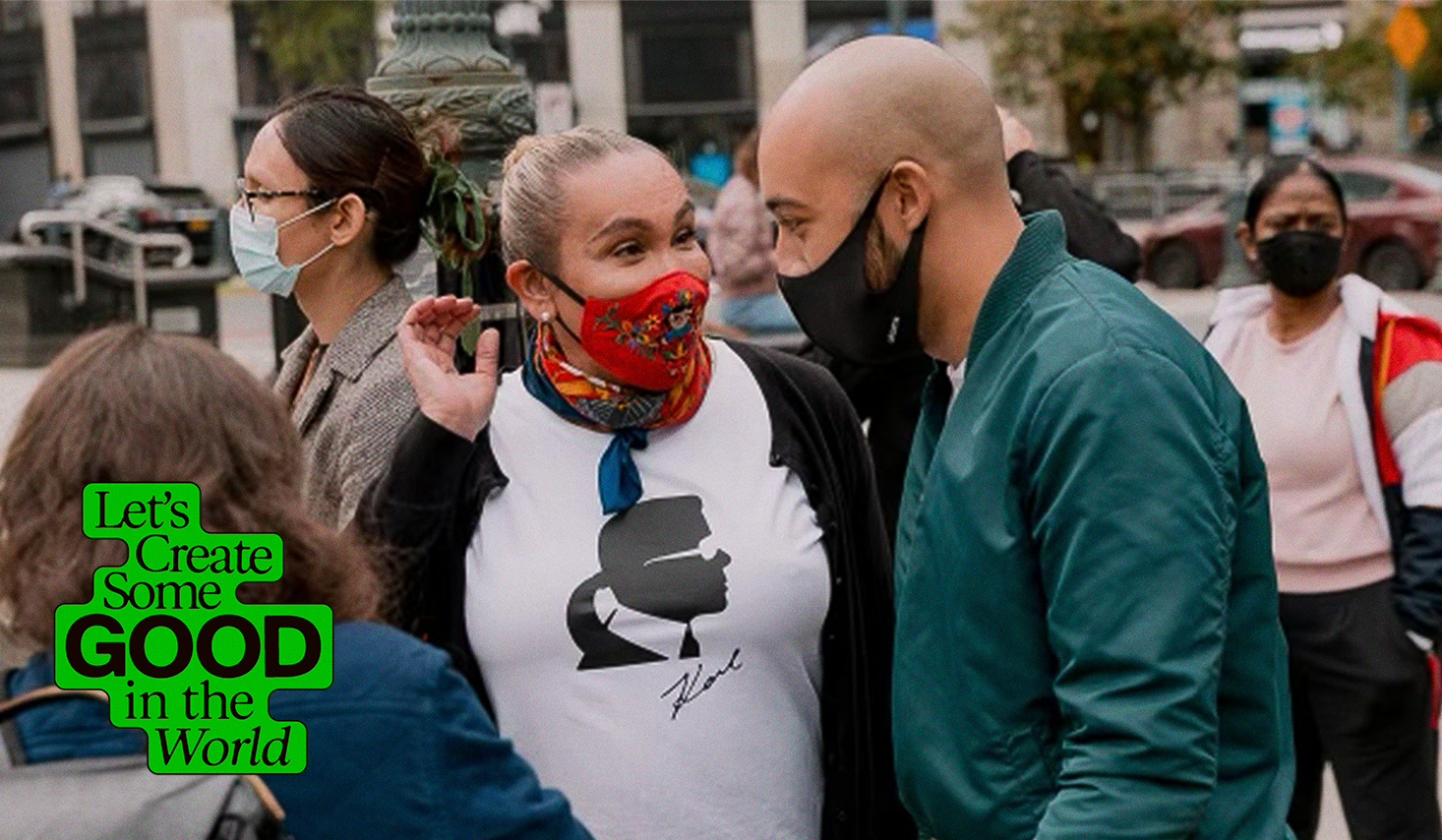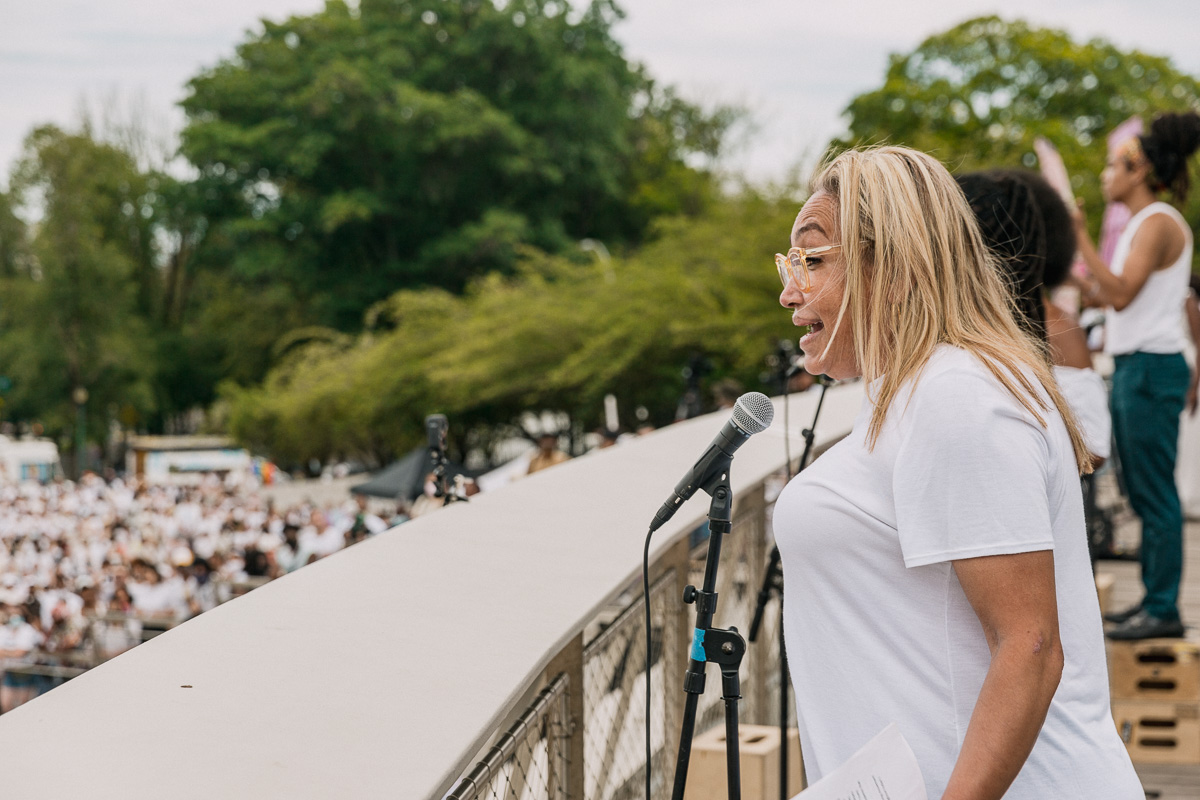
I first met Cecilia Gentili while working at the New York City Anti-Violence Project. She was a steering committee member at DecrimNY, a coalition currently working to decriminalize sex work in New York. She was an electrifying presence in my movement circles and beyond, committed to our liberation, and dedicated to using her voice to advocate for better conditions and policies for her people. But beyond her impact, she gave the best hugs, smothering you in, as she’d say, her “massive tits.” She was truly one of a kind, an organizer whose impact is immeasurable, whose sense of humor was unmatched, and whose absence will be a tremendous loss for decades to come.
There are few people like Cecilia. Her singularity, combined with her background as an immigrant and sex worker, is the reason her passing reverberated around the globe last month. She was the epitome of a community leader, a one-of-a-kind storyteller, and an irreverent human who transformed her personal hardships into levity. She fought for immigrants, HIV prevention, and sex worker rights, as well as healthcare, housing, and cash for trans people.
On the news or in our social feeds, we read about activists in these fields all the time, and often they become deified or exceptionalized. Cecilia was more than an “activist,” she was an artist and mother to many. It was her everyday commitment to others that we can adopt for ourselves as we keep her legacy alive. I’m honored to have been one of the many people she mothered or mentored. This is what she taught me and what she’d want me to share with you, or any budding activist.
Cecilia was more than an “activist,” she was an artist and mother to many. It was her everyday commitment to others that we can adopt for ourselves as we keep her legacy alive.
1. THE POWER OF ONE PERSON
No organizer works in a silo. That’s activism 101. The whole point of organizing is to build power within community, and good organizers like Cecilia always bring people together for collective action.
But often, when looking at the state of the world, the question we ask ourselves is: “What can I do?” “How will my actions make a difference?” The answer: join others asking themselves the same questions. Believe that, one connection at a time, the difference you can make is boundless. Cecilia was known for bringing people together to dream ideas to fruition. Like her namesake healthcare clinic C.O.I.N. at Callen Lorde, providing free healthcare to sex workers in NYC. She also worked in coalitions to secure over $15 million of funding at the city and state level for trans people and was a main plaintiff in a lawsuit against the Trump administration to defend trans healthcare under the Affordable Care Act. She didn’t do it alone, but she believed in her own enormous impact, and that is a mindset we can all adopt as we learn to find and do our work.
2. TURNING TRAUMA INTO POWER
Most organizers or activists indeed begin their work out of necessity, informed by their own needs and experiences with violence or trauma. That was certainly the case for Gentili, as documented in her memoir Faltas, whose experiences with sexual violence, religious discrimination, and seeking asylum in the US drove her to advocacy.
This is complex because too often in media, and especially in how Cecilia’s narrative has translated to press in the aftermath of her passing, there is sometimes an overemphasis on traumatic stories that can pathologize, deify, or dehumanize activists for the sake of a simpler, flattened story.
But Cecilia refused to be flattened. She’d tell sad stories of her past but still keep the punchline. She’d throw shade at herself and others as an act of love and comradery. She refused perfection, refused to be worshiped for her trauma, and instead relished what was dark, funny, different, and complex.
3. THE MAGIC OF STORYTELLING
Among Cecilia’s greatest gifts was her ability to tell a story. She could captivate an audience: on stages at fundraising galas, on the megaphone at protests, at city council giving testimony, or at her off-broadway one-woman shows like Red Ink and The Knife Cuts Both Ways. Storytelling, to her, was an advocacy tool that had the power to shift even the most staunch antagonistic perspectives, and it was a skill she nurtured and cultivated.

4. F*CK THE SYSTEM
As LGBTQ+ people, in the US and around the world, we know the state will never be our savior. Throughout history, the systems meant to provide support tend to fail, fall short, or leave behind the most marginalized in our community.
Cecilia’s answer to this was often mutual aid. “Mutual aid is the radical act of caring for each other while working to change the world,” offers Dean Spade, author of his book of the same name. When governments fail to respond to, or create infrastructure for our respective crises, it is ordinary people who find bold and innovative ways to share resources with one another. Cecilia was extraordinary, yes, but she was also deeply human, and what she did with her life is something everyone can do in their every day.
She was constantly crowdfunding money for trans folks in need. She’d find loopholes and back doors to get cash, care, employment, healthcare, or advice to anyone who needed it. Often this was direct care right from her pocket book, but if not from her, she’d use her extensive network to find what was needed, often just for one single person
5. F*CK RESPECTABILITY
The right spaces will invite us in, and the wrong ones will continue to exclude us based on dated expectations of decorum, diplomacy, social status, wealth, appearance, how we conduct ourselves, express ourselves, or talk about things like sex, or race, and discrimination.
Cecilia rarely let her integrity or selfhood be diminished in order to be legitimized by organizations or elected officials. She was always strategic and often made compromises to focus on the long game. But she always remained true to herself when she was doing the work.
6. POLICY CAN COME FROM ANYWHERE
And when you couldn’t “f*ck the system,” Cecilia was smart enough to work the system too. The legislative process can be intimidating to most people outside it, and that’s on purpose: legislative practice is kept inaccessible as a way to gatekeep from the average person.
I saw this at play when we fought together for Layleen Polanco, an afro-Latinx trans woman who died while being held in solitary confinement in Rikers Island in 2019. In Cecilia’s tireless fight to repeal the “Walking While Trans” ban, a loitering for the purpose of prostitution charge, the law was successfully repealed in 2021.
For us to hold the intensity of organizing, we must also create and prioritize space for joy, foolishness, games, play, and pleasure-seeking.
7. ALL OUR MOVEMENTS ARE CONNECTED
Across her many intersections, Cecilia Gentili seamlessly made connections between movements and preached on the importance of showing up in solidarity. Throughout the years, she rallied in solidarity with Black Lives Matters protests, advocated for Intersex communities, and educated people about the spread of monkeypox. Most recently, she was arrested protesting alongside actor Indya Moore and advocacy organization Jewish Voices for Peace for a ceasefire in Palestine.
8. JOY IS NECESSARY
I frequently spent time with Gentili at the club or during social events, almost as much as we spent time in meetings strategizing or building campaigns. Organizing is often heavy and challenging work, if not draining and demoralizing. For us to hold the intensity of organizing, we must also create and prioritize space for joy, foolishness, games, play, and pleasure-seeking.
It’s one of the reasons Cecilia started TRANMISSION FEST, New York City’s first all-trans music festival. Joy is a necessary mode of replenishing our movements, and it’s important for every organizer to find a healthy balance between their work in confronting systems of violence and finding spaces that emulate the world we seek to create.
The work of organizing to change the conditions of our world does not have to be soul-sucking. Despite the intensity of organizing, we cannot lose ourselves, our hopes, dreams, or happiness. As Cecilia has shown us, our liberation is bound up together, and showing up for each other can and should be fulfilling, joyous work.